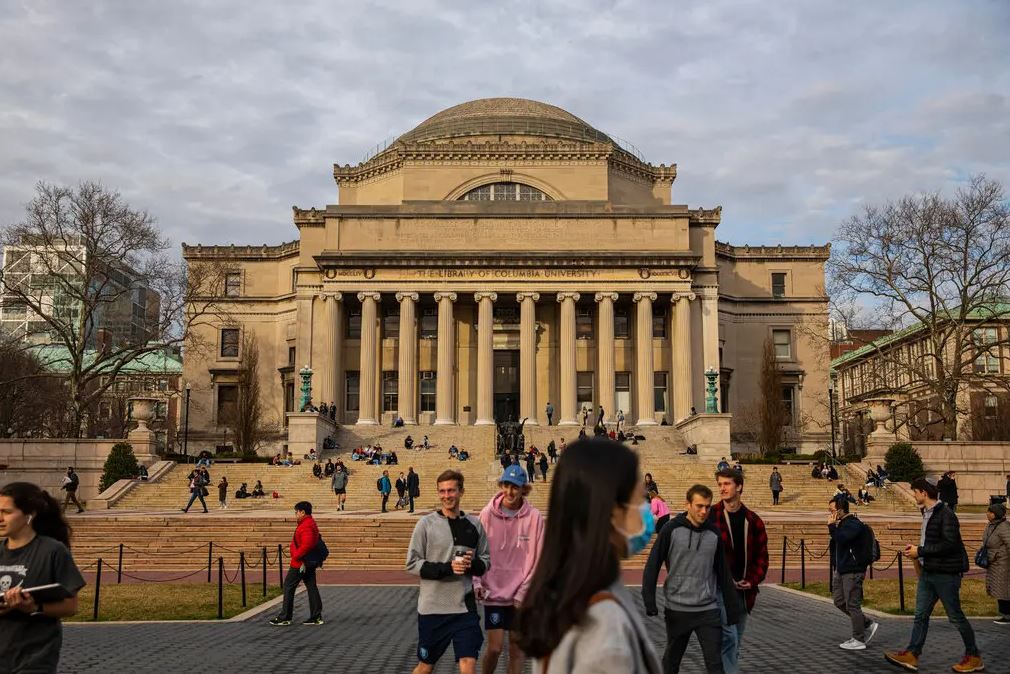Columbia institution became the first major institution to decline to submit information to the important undergraduate guide for students and parents, U.S. News & World Report, when it stated on Tuesday that its bachelor schools would no longer cooperate in the rankings.
Concerned about the rankings’ “outsized influence” on undergraduate admissions, Columbia issued the following statement. “Much is lost in this approach,” the university noted in a statement signed by administrators including Columbia’s provost, Mary C. Boyce.
After falling to No. 18 from No. 2 in the September rankings, Columbia joined the ranks of other top law and medical schools who have chosen to boycott the lists by refusing to supply data to U.S. News. The schools complained that the rankings distorted instructional priorities and were thus inaccurate and unjust.
U.S. News has acknowledged that it takes criticism seriously. In May, it was stated that a new technique will be used to evaluate undergraduate programmes, and that this new methodology would place more emphasis on a school’s performance in graduating students from underrepresented groups.
The fact that U.S. News said it would no longer depend on data that only institutions could offer suggests it was trying to protect itself against a bigger exodus. It has also recently encouraged U.S. Secretary of Education Miguel A. Cardona to require that universities make available statistics on their undergraduate and graduate students.
Even though U.S. News has not fully detailed its new approach, it may be an improvement with better data, according to Robert Kelchen, a professor of educational leadership in policy research at the University of Tennessee, Knoxville.
Despite widespread criticism of the U.S. News rating system over many years, almost all colleges and institutions continue to submit data for evaluation each year.
Class size and the proportion of teachers with terminal degrees were two indicators that U.S. News indicated it was deleting from its calculations, and Dr. Thaddeus claimed he uncovered disparities in the data that Columbia submitted to U.S. News about both.
Columbia said it had given inaccurate data after his charges surfaced, and the university did not submit updated data the following year. The decision was made final with the statement made on Tuesday.
Columbia expressed its support for the decision of U.S. News to evaluate universities based on their ability to successfully graduate students from a wide range of socioeconomic backgrounds. Students in Columbia’s general studies programme, who may choose a more unorthodox route in their education, were a potential source of bias, the university said.
Historically Black Stillman College in Alabama, as well as Colorado College, Bard College, and the Rhode Island School of Design, all dropped out of the rankings this year.
Colorado College president L. Song Richardson said in an interview on Tuesday that he did not want to be seen as “complicit” by sending data to “a ranking system that we say fails to accurately assess the educational experiences of our school.”
While she did give U.S. News credit for making certain changes, she felt they hadn’t gone far enough. She had harsh words for the annual U.S. News survey used to determine university rankings. “We call it the beauty contest,” she said.
After Yale left the law school rankings last year, several other prestigious universities, including Harvard, Penn, and Stanford, followed suit. However, the vast majority of universities remained in the rankings.
Market dominance is reflected in U.S. News’ claim that more than 35 million individuals have examined its rankings in the last year.

